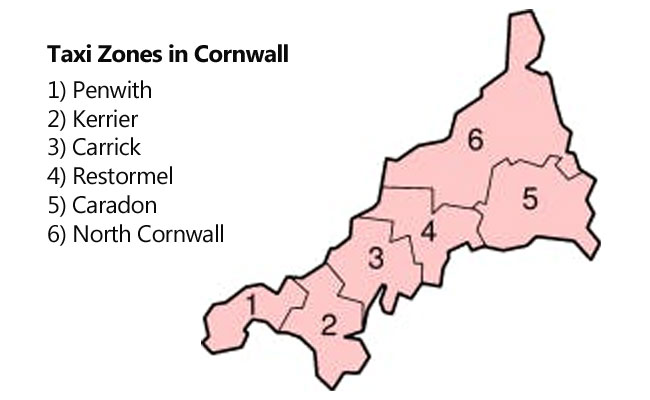“Taxis Follow the Money — and That Won’t Be to St Just or St Blazey”
Taxi drivers across Cornwall are deeply alarmed over a Council proposal that could quietly dismantle rural taxi services — by raising fares and pushing drivers out of the areas that need them most.
Cornwall Council intends to push a plan to unify taxi fares across the county — but drivers are worried it’s a backdoor route to scrapping local zones, raising prices, and gutting rural taxi services. On the surface, it may seem like a simple administrative change — but in reality, it paves the way for removing the local zones entirely. This subtle shift could lead to a collapse in rural taxi access and service reliability.
“Let’s be honest — taxis go where the money is.”
“If Cornwall scraps the zones, you’ll see drivers leaving the more rural areas and crowding into Truro, Falmouth, and Bodmin. Rural Cornwall will be left behind — again.”
With local elections just days away, drivers urge candidates to speak up — and voters to demand answers.
Local Tariffs Work — Because Cornwall Isn’t Just One Place
Cornwall’s six taxi zones reflect the county’s economic diversity. Urban centres like Truro, Falmouth, and Bodmin have higher population density and more fare opportunities, while rural and coastal areas operate on slimmer margins, with seasonal demand and higher costs.

Cornwall’s six taxi zones reflect the county’s economic diversity. Urban centres like Truro, Falmouth, and Bodmin have higher population density and more fare opportunities, while rural and coastal areas operate on slimmer margins, with seasonal demand and higher costs.
If fares are harmonised — and inevitably aligned with the most expensive zones like Caradon, North Cornwall, and Truro — quieter areas like Penwith, Kerrier, and Restormel will face higher prices. This could make local travel unaffordable for residents, while encouraging drivers to abandon rural zones for the more profitable urban centres.
“This is about more than fares — it’s about survival.”
“If fares are the same everywhere, and zones are scrapped, we’ll have no choice but to chase the money. That won’t be the less profitable rural areas — it’ll be Truro, Falmouth, and Bodmin.”
National Guidance Backs Local Zoning Where Appropriate
The council will cite ‘National Guidance’, but while the Department for Transport’s Best Practice Guidance does recommend de-zoning, it also recognises that:
“Zoning may reflect local conditions or historical arrangements and may continue to be appropriate in some circumstances.”
Cornwall — with its fragmented geography, limited rural transport, and a deeply seasonal economy — clearly fits these circumstances. Zoning isn’t an outdated relic; it’s essential for ensuring that all areas of Cornwall, urban and rural alike, have access to fair taxi services.
De-Zoning Through the Back Door: A False Simplification With Real Consequences
Critics argue that this isn’t about improving passenger service — it’s about cutting costs for the Council. By unifying fares, the Council is effectively laying the groundwork for de-zoning without any formal debate or consultation.
A single fare tariff system might seem easier for administrative purposes, but the real price will be paid by rural passengers who depend on affordable, local taxi services and small local operators who can’t compete with the big centres.
“It’s not simplification — it’s centralisation.”
“The real losers will be the elderly, the disabled, and families in places no one will want to serve anymore.”
Cornwall’s Taxi System Works — So Why Break It?
The current zoned system isn’t broken. It has evolved organically to reflect the needs of communities across Cornwall — from town centres to isolated villages. It ensures fair pricing, viable business, and reliable service where it’s needed most.
Drivers aren’t asking for special treatment — they’re asking for a system that works to be left alone.
The zones exist for a reason. They allow rural passengers to still get a cab in the middle of winter, and they let local drivers stay local without being forced to abandon their own communities to chase profit in city centres.
And yet, Cornwall Council seems determined to dismantle that system, not because it’s failing, but simply to save a few pounds on paperwork.
Is it really worth dismantling a well-functioning public service — just to make the paperwork easier?
Once again, the consumer will lose — and prices will only rise!
Cornwall’s rural communities deserve better. Candidates must commit to protecting local taxi services — before it’s too late!
